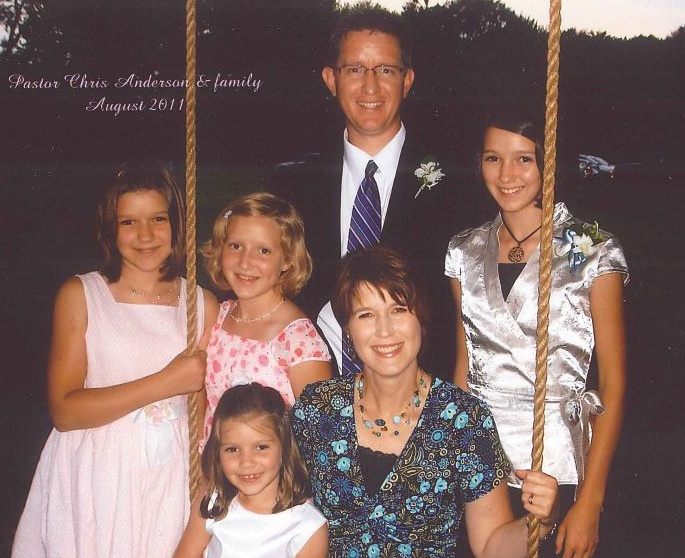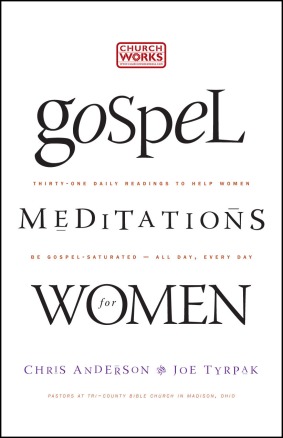I’ve been burdened for some time that we fundamentalists have espoused what appears to me to be a stoic repression of our emotions when it comes to worship. Forgive the analogy, but to hear or watch some worshipers–both during specials and congregational singing–you would think that the goal of the true worshiper is to achieve a Spock-like absence of emotion. Such an approach to worship is as unattractive as it is unbiblical.
On the other hand, we’ve all seen the abuse of emotion, whether it be in Pentecostalism or revivalism. Finney made no bones about his manipulation of people by pushing their emotional buttons. In fact, he claimed to be imitating God, the first and best manipulator of human emotions. Here’s a humdinger:
“God has found it necessary to take advantage of the excitability there is in mankind, to produce powerful excitements among them, before he can lead them to obey…There must be excitement sufficient to wake up the dormant moral powers, and roll back the tide of degradation and sin.” (Finney, Lectures on Revival, p. 4, quoted in Give Praise to God, p. 368)
In other words, God uses the emotions to engage the will (which is in neutral)–and so must the minister. (Plop, plop. Fizz, fizz.)
If we are aware of the dangers of the two extremes–the fear and the abuse of the emotions–how can we be sure our emotions are being properly aroused and directed? W. Robert Godfrey provides a very helpful and concise answer in “Worship and the Emotions,” his contribution to Give Praise to God:
“If our central aim in worship is to seek Christ by faith through the forms he instituted and promised to bless, then we have a basis on which to expect deep and lasting affections to result. Such emotions will be true and fruitful as the response and result of our worship. When our faith and our worship look away from themselves to Christ, then the sweet and true affections of our faith will be felt. The we will recognize that the affections reinforce the worship that we offer out of faith. But when emotions are the center of concern and the object of the worshiping experience, only impure and fleeting emotions will result.” (GPTG, 367)
There is so much that is excellent in that statement. We are to seek Christ, not an experience. When we do so by biblically authorized means, we can expect genuine emotion to be present–indeed, it must be. However, it will be the “response” and “result” of our worship, never the “center of concern” or “object.” When we gaze on Christ, the emotional response is legitimate and Christ-honoring. But that is only possible when we “look away from ourselves.” When an emotional experience is sought, it will inevitably be carnal, for we have thus looked toward ourselves and made our worship egocentric.
Two more thoughts along these same lines:
Godfrey suggests that the shift away from Psalms and hymns and toward CCM in modern worship is not at all an accident, but is a result of the emotionalism that has dominated the last century and a half of evangelicalism:
“The contrast between praise songs and psalm singing is not at root a contrast of different styles of music, but a contrast of different theologies of music. In much contemporary Christian music, emotion is the object of the song. The emotions engendered by the music become a new sacramental connection to God. In historic psalm singing, emotions are the effect of the heart’s engagement with God through the words that he gave us to sing.” (GPTG, 370, emphasis mine)
Finally, Godfrey offers a powerful quote from Robert Dabney about the danger of allowing emotion to be the judge of whether worship is good and true. It deserves the attention of all fundamentalists, but seems to be an especially germane warning to Pentecostals and Pentecostal wannabes:
“Blinded men are ever prone to imagine that they have religious feelings because they have sensuous animal feelings in accidental juxtaposition with religious places, words or sights. This is the pernicious mistake which has sealed up millions of self-deceived souls for hell.” (Quoted by Ernest Trice Thompson’s Presbyterians in the South, then in GPTG, 370)
Lots to think on here. The connection between worship and emotion is a topic that deserves much more attention than it has received, friends.
Filed under: Book Reviews & Discussions, Contemporary Issues, Notable Quotes, Worship |










Chris,
We’ve had a bit of discussion on this topic recently at Irrelevant. What I am not convinced of is that expression of emotion in worship should look like it what is typically thought of in modern American churches.
Excellent post Chris! I’ve thought about this for years. Making emotional decisions whether spiritual or not will put anyone on dangerous ground. I think that is why we are reminded to be sober and vigilant. Satan obviously uses emotions against our will and that is why we must be careful.
I remember a friend of mine, an older man about in his sixties, who came up to me a day after a not so good deacons meeting and said, ” I can’t believe I’m this old and still have to work at suppressing my emotions “.
Feelings come and go. Disciplined decisions for Christ do not come easy, but I continue to find that the rewards are better than the alternatives. And I’m sorry to say I know those alternative rewards all too well!
To reiterate what Pastor Anderson said, and to quote one more author, “Emotions do not authenticate truth. But emotions do validate our understanding of the truth.” Grasping the truth of God’s Word will result in an emotional response (ex., a response of joy when I understand the ramifications of the truth that Christ rose from the dead).
The role of emotions in a believer’s life is something that my husband and I have been pondering and discussing. God had a purpose for including emotions in our human makeup. In that they are part of the image of God in man, they are obviously not inherently evil. And it is true that feelings fluctuate and change. But, why is that? That to me is an intriguing question, and one that merits some attention. If our emotions are not “right,” is it enough to exert our will over our emotions? Or could a “wrong” emotion be an indicator that something is wrong in my walk with the Lord, and that whatever is wrong needs to be addressed rather than ignored?
Chris, I have thought a lot about this topic as well. One thing that clouds the issue, in my opinion, is our individual emotional constitution. By that I mean that each of us see the issue (emotional response) through the lens of our own disposition. For example, I have heard well-meaning and godly men who are of a more emotional disposition decry the lack of emotion in our churches. At the same time, other men with a more solemn temperament anguish over the over-emotionalism in our churches.
Certainly there are extremes in either direction that are incorrect, but God has made each of us differently. Anyone who is married can appreciate the differences in emotional makeup between two people and the divergent perspectives this brings about. All of this to say that one man’s “Spock-like absence of emotion” could be another’s “acceptable worship with reverence and awe” (Heb 12:28). Conversely, one man’s “legitimate and Christ-honoring emotions” could be viewed as “silly and sappy emotionalism” by another.
This also touches on a pastor’s leadership style. One may be outgoing, emotional, loving, and “huggy” (appropriately so), while another may be stoic, guarded, serious, and more emotionally distant. People in the church are similarly diverse, and one leadership style may engage some and/or another repel others. I tend to think a good balance of “head and heart” is a boon for a local church.
Since I “thought” my way to this conclusion instead of “feeling” it, you can probably guess along which lines my temperament runs. However, I have begun to learn and appreciate the blessing and benefit in ministry of a mixture of both.
Thanks for chiming in, Melinda. I think you’re correct on both points: emotions must be ruled by the Scripturally-saturated intellect and Spirit-controlled will. Scripture thus commands emotions; they can and must be controlled. But I also agree with you (as I understand your post) that they may be indicative of one’s spiritual condition. I think of them as a “thermometer” vs. “thermostat.”
You make a lot of sense, Mark. (That’s my mind speaking.) And I feel good about what you’ve said, as well. (That’s my sap speaking.) Seriously, your point is well-taken. I’m an emotional guy, so I probably do tend to be critical of those who are less expressive than I am. But I do think that we have reacted against the rampant emotionalism of the last century and of Pentecostalism in general to the point that we have become suspect of any display of emotion whatsoever. That’s hard to square with the whole-being worship which is the first and great commandment, I think.
Question: I’m a particularly “outgoing, emotional, loving, and ‘huggy'” guy. There are challenges that arise from such a makeup, especially because they often co-exist with particular weaknesses, be it administration or whatever. But don’t the challenges that arise from a more stoic temperament pose a greater challenge? It seems like a “coolness” would tremendously hinder ministry, especially pastoral ministry. Is that just my “everyone-should-be-like-me” provincialism speaking? :)
(Notice the smiley, indicating both emotion and good will. Also notice that Greg has tried in vain to start a blog war with me over this issue.)
How about this, all: the way one expresses emotion will differ from person to person, but it certainly must be present in whole-being worship.
“Blog War?”
Talk about overly emotional!
:P
I wonder if there is not too much of a “one size fits all” approach in this area of emotions. Are we not tempted to look at those more joyous than we and call them “overboard” and those more solemn than we and call them “stodgy”?
My mind goes to the words of Christ about John the Baptist: “For John came neither eating nor drinking, and they say, ‘He has a demon!’ 19 “The Son of Man came eating and drinking, and they say, ‘Behold, a gluttonous man and a drunkard, a friend of tax collectors and sinners!’ (Matt 11:18-19).
In other words, with some people, you just can’t win.
Is there not a place to allow people to worship with a different emotional response without rejecting them? May not this be more personal then we are wont to allow sometimes?
I think Larry pretty much hit the nail on the head there. But on the positive side, our congregations are made up of people with different personalities as well.
Of course there are advantages and weaknesses to any type of personality. The point I was trying to make in my first comment (which I realized after I posted that I hadn’t really driven home) was that there is a wonderful benefit in having different personality types in church leadership. I feel that I complement my senior pastor in many ways: I keep his feet planted on the ground and he keeps me from being perpetually depressed. It’s kind of like how the pessimist describes himself and the optimist: he’s a realist and the optimist is a dreamer. :-)
The elders at our church are a wonderful blessing because they come from such different backgrounds, have such diverse personalities and experiences, and you instantly have seven angles of viewing any situation. One person will be upbeat, one will foresee all the problems, one will be slow to “pull the trigger,” etc. Some of the problems of the “one size fits all” approach come when one guy (the pastor) must be all things to all men.
Chris, in answer to your question: the way that each of us sees our responsibilities as a pastor probably stems from our personality. If I read you right, you’re thinking, “Well a pastor basically has an ‘outgoing, emotional, huggy’ job, so how could you even be a pastor without having my personality?” Someone else could be thinking, “A pastor is an overseer, an administrator, a careful and serious (KJV “grave”) teacher, how could an ‘outgoing, emotional, huggy’ sap even attempt it?” See what I’m saying?
A passage that has given me comfort and encouragement in attempting to shepherd God’s flock with a less than “outgoing, emotional, or huggy” personality is Romans 12:6-8, “Having gifts that differ according to the grace given to us, let us use them: if prophecy, in proportion to our faith; if service, in our serving; the one who teaches, in his teaching; the one who exhorts, in his exhortation; the one who contributes, in generosity; the one who leads, with zeal; the one who does acts of mercy, with cheerfulness.”
Instead of wringing my hands and wishing I was somebody else, I have tried to do what this verse says: if God has gifted me in the area of service (I am an assistant, after all), then I’m going to be the best second man I can be. If God has gifted me as a teacher, I’m going to concentrate on being the best teacher I can. If God has gifted me as an administrator (I would contend that every pastor/elder must have this gift – 1 Tim 3:4-5), then I’m going to do it conscientiously with careful attention to detail. Of course, I’ll still expend massive amounts of energy trying to be outgoing and huggy, especially on Sunday.
That said, the New Testament lists of qualifications for a pastor (or elder) don’t say much about personality type. Furthermore, the qualifications don’t really seem to require or seek the outgoing, huggy hand shaker/baby kisser either. I think the American consumer mindset drives that.
I cry in every service I attend in joy for my Savior’s forgiveness, and, secondarily, for my needing it so much. I am humbled every time I go to worship the awesome God that he is. I stand in the presence of the Most High when I worship. Tears of joy and tears of being forgiven. God is great and rightly to be praised in the sanctuary of his holiness.
Mark and Chris,
Don’t try to hug me.
With love,
Andy
Don’t worry, Andy.
Pondering The Expression of Emotions
NOTE: This post is a continuation of conversation taking place at My Two Cents and here at Irrelevant.
Chris,
There is a world of difference between the imagery of “O Sacred Head” and say, “In The Garden.” What you call “b…
I agree with much that has been said here. I would categorize myself under a more emotional form of worship; I raise my hands sometimes, kneel, or cry. Sometimes I sway with the music. As long as the person is not seeking an experience, they are not being distracting (“barking in the spirit” is not allowed…), and the form is biblical, then I’m alright with it.
I would like to make a comment on the quote by Godfrey: I do not believe that you can make a blanket statement that the shift from psalms and hymns to CCM is due to emotionalism. On some occasions, probably, but the words in the Psalms and the Hymns (which weren’t around in Jesus’ day) that move me to awe of Christ or to tears of repentance aren’t any different than the ones in CCM that do the same thing. I enjoy having both, because both styles speak to me, and for any fundamentalist or pentecostal to try to categorize one particular style as “the only way” is too focused on the means of the worship and not on the object, Christ.
Good post. :)